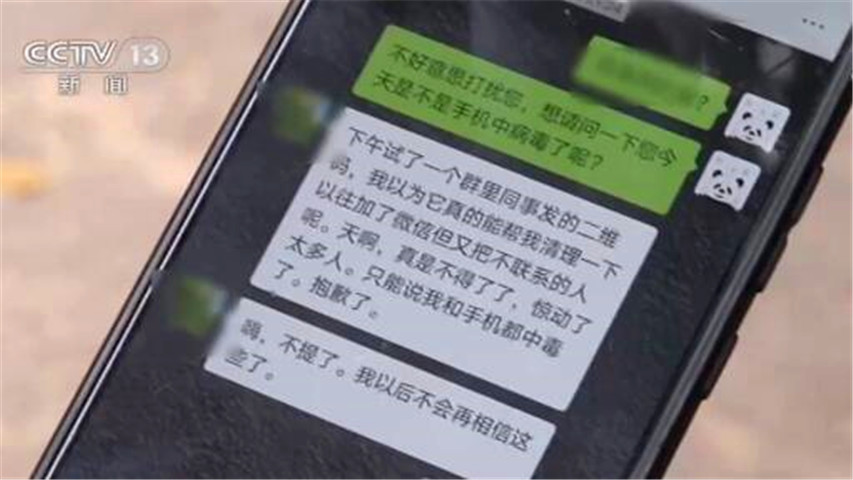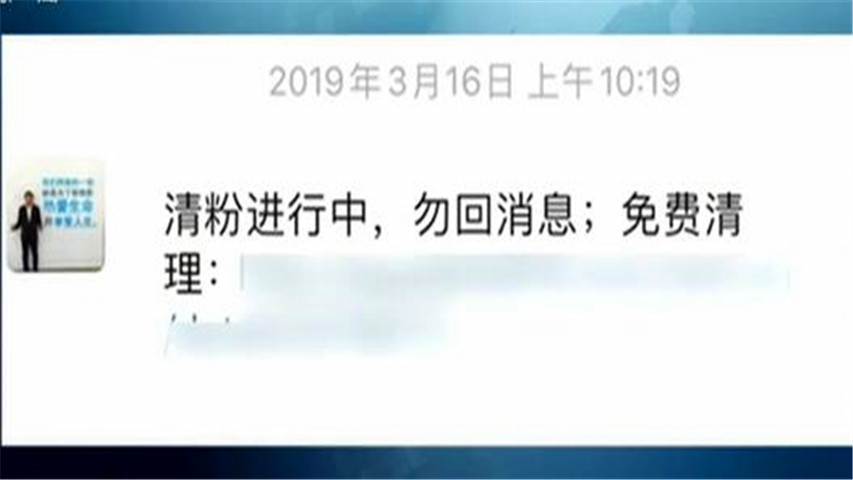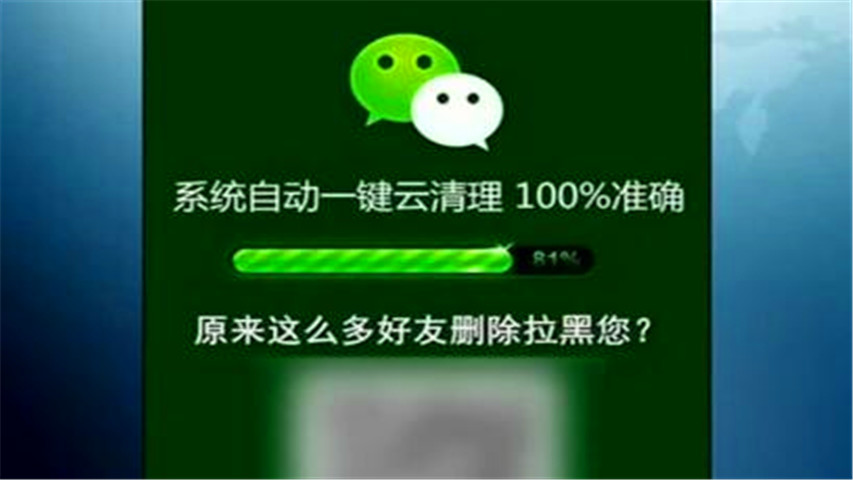CCTV News:Wechat has become the main contact method for many people. On many occasions, people have changed from leaving a phone number to adding friends. The WeChat address book is getting longer and longer, but some people in it rarely contact each other, so a service called "WeChat cleaning powder" came into being. I believe many people have received and seen this information, and even used this service. What you don’t know, however, is that this method may threaten your information security.
Nianheng is a medical worker. One day in September this year, he suddenly received a WeChat message that surprised him.
Nianheng: "After I opened it, I found that it was a teacher who had not contacted for a while. She sent a WeChat circle of friends, saying that she had recently used a WeChat powder cleaning service, which was very useful. There was a link at the bottom. I was also very surprised when I saw this news at that time, because I was under the impression that teachers generally did not send such news. "

Nianheng sent a WeChat to the teacher to ask what happened. The other party replied that she saw a QR code of powder cleaning in a WeChat group. Considering the large number of friends in her WeChat, she really wanted to clean up her friends, so she tried.

Nianheng: "At that time, after (the teacher) recognized the QR code, she sent some messages to the circle of friends without her knowing it, and also spread these messages to the group, which brought her a lot of trouble. I didn’t do anything else that afternoon, and I have been explaining that I was cheated. It was automatically sent after scanning the QR code. "

During the interview, many WeChat users reported that they had received the WeChat clear powder link or QR code sent by their friends. These WeChat "clear powder" links will not only automatically send advertisements in the circle of friends, but also steal the user’s personal account information to sell for profit. Netizen Ms. Huang reflected on the consumer complaint platform "Gathering Complaints" that after using the "Clear Powder" service in May this year, she quickly discovered that there was a transaction on WeChat that she did not know, and the other party was an online game. Then she found that in this online game that she had never been exposed to, she actually had her own real-name registered account.
Wechat "cleaning powder" is actually a big risk in controlling account security.
So how does this so-called "cleaning powder" service operate, and what information security risks will it bring to users?
Experts said that the principle of "cleaning powder" is to control the WeChat account to be cleaned by applying cluster control software, so that the account can automatically send messages to all its friends, and then the group control software can identify which ones are "zombie fans" and delete them according to "whether the information can be successfully sent and received". Whether it is mass messaging or group soliciting, users need to scan the QR code to authorize the provider of cleaning service to log in to the web version of WeChat. And behind this, there are huge risks.

Hu Qimu, a senior researcher at the Digital Economy Think Tank: "The first one is that you authorized him, which is equivalent to him taking over your account, so that he can retrieve your personal information, including WeChat address book, chat record, and your mobile phone’s address book, chat materials, address book and some of your information, which may be leaked; Second, by taking possession of one of your accounts, he will register some other accounts to do something. If these things are illegal, it will have an impact on your personal credit information; Third, he may send some information such as fraud through your account. "
The first case of "cleaning powder" in China was solved. Experts reminded that scanning code must be cautious.
Recently, the Public Security Bureau of Nantong City, Jiangsu Province disclosed that they successfully detected a case of illegally obtaining computer information system data by using WeChat "cleaning powder" software in the "Clean Net 2020" special action, and all five suspects involved in the case were arrested, which is also the first case in China that illegally obtained information by using "cleaning powder" software.
In the detection of the case, the police of the Netan detachment of Nantong Public Security Bureau in Jiangsu Province found that the illegally obtained user information around the "powder cleaning" software has formed a black industrial chain of illegal reselling.
Cao Canhua, a policeman of Tongzhou District Public Security Bureau, Nantong City, Jiangsu Province: "After obtaining the control authority of WeChat account, the criminal suspect took the opportunity to illegally obtain the QR code information of users’ WeChat group chat, and saved these QR codes in the form of pictures on the server."
Subsequently, the criminal suspect resold the user’s WeChat group chat QR code and other information to downstream criminal gangs such as fraud and gambling. In just three months, the criminal gang illegally obtained more than 20 million QR codes of users’ WeChat group chats, all of which were sold to fraud and gambling criminal gangs in Longyan, Fujian and other places. At the same time, it also paid attention to WeChat WeChat official account in batches, brushed reading and praised others, and made profits of more than 2 million yuan.

Xu Hui, deputy head of the Netan Brigade of Tongzhou District Public Security Bureau, Nantong City, Jiangsu Province: "From illegally obtaining the relevant personal information of WeChat users to downstream advertising, marketing and other cyber crimes, the related network black ash production has formed an independent and closely coordinated industrial chain."
At present, five suspects involved in the case have been arrested on suspicion of illegally obtaining computer information system data, and the case is being further processed. Lawyers said that "concealment, cross-regionality, and difficulty in fixing evidence materials" are the difficulties in rectifying such chaos, and these characteristics also increase the difficulty of users’ rights protection.
Bo Meng, a lawyer of Beijing Jingshi Law Firm, said that based on the huge potential risks of "cleaning powder" software, it is not recommended to use such "services" to raise awareness of prevention and protect personal information; Don’t easily click on links and QR codes from unknown sources; When transferring money abroad, check it in advance.
We also call on software developers to take more active supervision responsibilities and find ways to block such behaviors from the source to avoid users suffering losses.